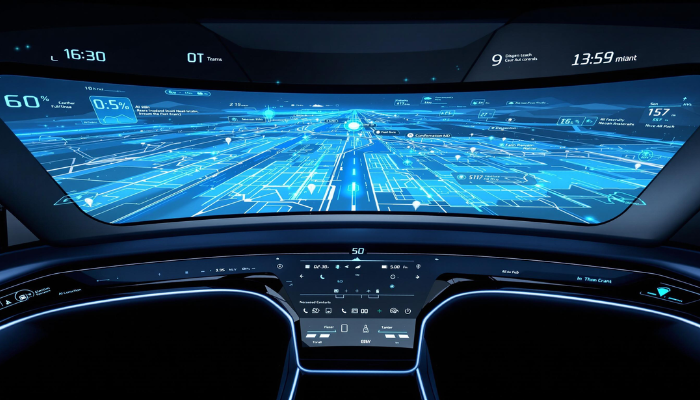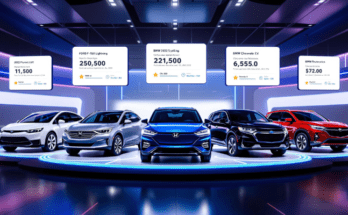Introduction
The increased use of digital technology has greatly enhanced car technology, most importantly through navigation systems and . Not only do these intelligent systems continue to develop and include new features and technologies which provide real time route guidance for drivers but which also improve driver experience. Looking forward into the year 2025, it would be interesting to see what can be done further to more sophisticated car navigation systems. In this article the author focuses on the futuristic aspects and advantages of further developments of the car navigation systems, which will be implemented into cars in the near future.
Editorial: Progress in Hardware and the UI
It is important to note one of the fastest expanding trends of car navigation systems for 2025 is the sphere of an engineering component and an interface. As safety becomes a paramount concern we can look forward to having more touch sensitive displays with higher and better actualised and contrasted pixelization. As hardware components become more powerful and as data transfer rates increase, operations will become less cumbersome, more responsive, and routings more quickly calculated. Also, we are going to see more elaborate haptic feedback that will offer sensations to help them explain system responses and, in turn, make it easier to handle.
Use of advanced Technologies
This paper shows that the future of car navigation system is in the ability to incorporate new technologies as they emerge. To be more specific, the built in artificial intelligence will be playing a big part in all of this as these systems will be able to better adapt to the driver’s behaviour, and even predict the best routes and even the destination based on behaviour and preferences of the user and on the real life conditions. Also, future improvements in augmented reality (AR) and virtual reality (VR) technology will allow for excellent heads-up display and three-dimensional guidance, dramatically improving driver consciousness and boosting the value of driving.
Better Real-time Data and Connections
Car navigation systems have the ability to incorporate real time traffic and weather situation and points of interest. By the end of 2025 these systems are presumed to enhance their accuracy as well as their overall information with the help of cloud computing, integration of internet of things and data intelligence. It would be possible to do things like optimize the route plan, anticipate when maintenance is required, and even work perfectly with other connected headers and smart city systems.
Voice Recognition and natural Language Recognition.
Voice recognition and NLP are going to be key features of the next generation of car navigation systems. These technologies are likely to give drivers a natural way of operating it and using them without taking their eyes off the road. Further, further advancement In NLP or speech-to-text translation means more sophisticated instructions comprehended by the navigation system thereby improving the interaction between the driver, the passengers and the vehicle.
More Privacy, and Individualized Lives
Advanced car navigation systems’ most important advantage is the capability for added customization and personalization. Meanwhile, by moving forward into 2025, such systems will be uniquely customizable according to preferences, driving styles, and needs. It ranges from intelligent routes guidance to adjust sound counter and even the climate control settings all integrated into the navigation system naughtiness.
There are two major subdivision within the environment aspect: Sustainability and Eco-friendly Features
The question of sustainability has never arrived at a time as critical as today, and this is also true for car navigation systems. Entering 2025, it will be possible to provide increased amounts of environmental protection, for instance, through the usage of energy-saving microprocessors, the AI system for route planning to require less fuel, as well as the navigation system containing the infrastructure for EV charging. All these changes harbor an intention to pave way for a cleaner and environmentally sustainable transport system in the future.
Conclusion
The future of car navigation systems seems bright, as one can have it today and the advanced technologies and new novelties can successfully change the driving concept. In terms of sophisticated tools, AI-driven individualization of vehicle setting, environmentally friendly processes, and more closely interconnected vehicular travel, these systems imply the emergence of a new concept of transportation. The innovations in car navigation system for the year 2025 will primarily reflect on safety, user interaction, and ecological aspects — factors that when combined with comfort, productivity, and fun will set a new benchmark for the automotive world.




